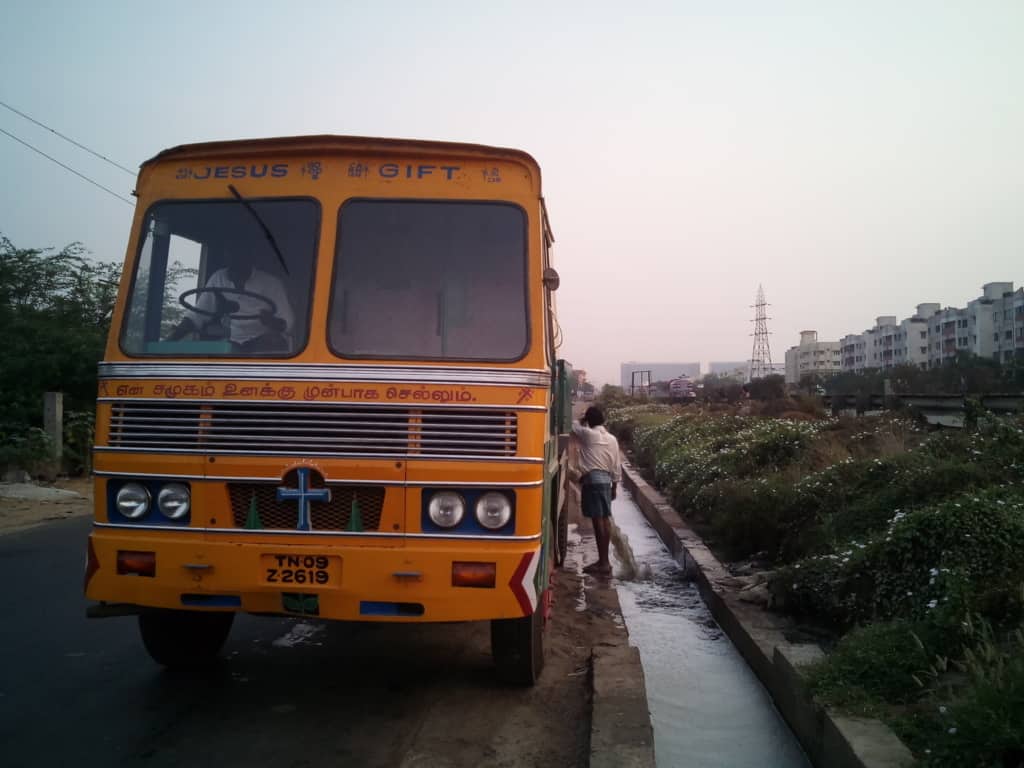Every day, thousands of residential homes and apartment complexes across suburban Chennai, which are not connected to the underground drainage network of the Chennai Metropolitan Water Supply and Sewerage Board (CMWSSB), are at the mercy of the private sewage lorries which remove the sewage water from their septic tanks.
The lorry-owners demand anywhere between Rs 750 – 1000 per tanker load. Not satisfied with this, and driven by the sole objective of maximising their profits, they illegally dump the entire raw sewage water from the lorries into open fields, lake beds and storm water drains.
The capacity of a tanker is approximately 9000 litres and each lorry makes about 10 – 15 trips a day. On a daily basis, therefore, around 100,000 litres of raw sewage is illegally let out by a single lorry. Think of the number of such lorries operating and the picture is terrifying!
The tragedy is that it only costs Rs 100 to discharge the sewage water at the nearest Metrowater Sewage Treatment Plant (STP) or Pumping Station (PS).Yet, the lorry owners refuse to pay even this paltry sum and blatantly pollute the environment.
The devastating consequences of raw sewage mixing with water bodies are well known, yet no action is forthcoming from the concerned authorities. The picture above was taken on the service road abutting the Chennai Bypass Road in Nolambur.
Repeated complaints to the CMWSSB, the police and Chennai Corporation have had no effect. The lorry owners are politically well-connected and hence any action that is taken by the authorities is very weak and does not deter them. A petition has also been created on Change.org to highlight this issue and galvanise action on the front.
Amongst all this, however, one question stands out. CMWSSB collects water and sewerage tax from all residents living within the boundaries of the Greater Chennai Corporation (GCC), even if it does not provide any of these services in many of the areas. This being the case, why should it shirk the responsibility of removing sewage water from the buildings and transferring it to its pumping station by using its lorries, as it does for the supply of drinking water?
In addition, it will also help if a robust tracking mechanism is put in place to ensure that the sewage water collected by the lorries is properly transferred to the nearest Metro water STP or pumping station. The lorries which flout the laws should be seized, and hefty fines and jail terms must be imposed on the offending lorry owners.
